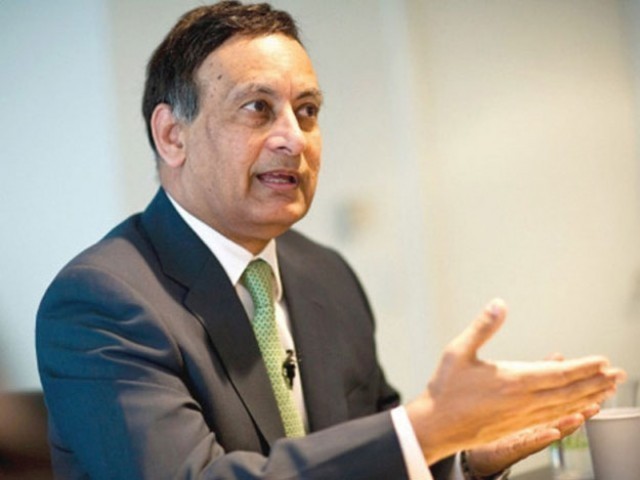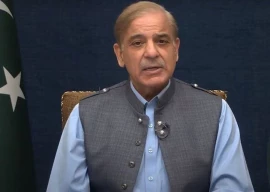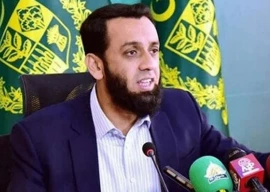
“Views of Hussain Haqqani published in a mainstream US newspaper, especially his account on issuance of visas, vindicate the stance of Pakistan’s state institutions,” Inter-Services Public Relations (ISPR) chief Lt-Gen Asif Ghafoor said in a post on Twitter. “The veracity of concerns about his role in the entire issue also stands confirmed,” the military’s chief spokesman added in another tweet.
Haqqani, in an opinion piece for The Washington Post earlier this month, admitted he facilitated the stationing of American commandos and spies on Pakistani soil. Classified documents also revealed that then government of Pakistan Peoples Party (PPP) allowed the former ambassador to the US at the highest official level to issue visas to American nationals, bypassing all security protocols.
Security forces have maintained all along that the ex-envoy could not have worked alone, without keeping the civilian government in the loop.
The controversy triggered a heated debate in parliament with Prime Minister’s Adviser on Foreign Affairs Sartaj Aziz in his policy speech before the Senate indicating that the interior ministry, through a letter dated July 16, 2010, had allowed Haqqani to issue diplomatic visas to American nationals without referring their cases to the ministry or security agencies for clearance.
Views of Hussain Haqqani pub in a mainstream US newspaper esp his account on issue of visas vindicate stance of Pak's state institutions.1/2
— DG ISPR (@OfficialDGISPR) March 29, 2017
The veracity of concerns about his role in the entire issue also stands confirmed.
— DG ISPR (@OfficialDGISPR) March 29, 2017
As a consequence of this policy, there was an unprecedented increase in the number of visas issued to US citizens. As many as 2,487 visas were issued between July and December that year, a 50% increase over figures for the previous six months. This number of visas was also higher than those issued in the preceding three years.
PPP, however, fiercely defended the move. Senator Farhatulllah Babar said that although Haqqani was empowered by the then prime minister to issue visas, it did not mean that due process within the embassy, involving representatives of other relevant departments, had been circumvented.
Likewise, Yousuf Raza Gilani, who was premier at the time, said he never allowed Haqqani to issue visas to members of US special forces. “The envoy had only been allowed to issue visas conditionally,” Gilani told reporters in Multan last week. “Empowering any ambassador did not imply he could resort to illegal means [during the conduct of his services],” he said.
PPP defends visa powers to Haqqani
PPP also insisted that the controversy appears to be aimed at tarnishing the image of its leader Asif Ali Zardari.
Since the Memogate scandal, the security establishment has considered Haqqani a person who worked against Pakistan's national interests. Although, the ISPR would not provide further details, the emphasis on vindication of Pakistan state institutions’ stance appears to refer to Memogate, in which Haqqani was accused of hatching a conspiracy to undermine the country’s military leadership.
'Hussain Haqqani is selling his motherland'
The public first learned of the scandal in October 2011 when Mansoor Ijaz wrote an article in Financial Times in which he claimed to have delivered a ‘memo’ to US Admiral Mike Mullen on behalf of Haqqani seeking Washington’s help to prevent a military takeover in Pakistan in the wake of the killing of Osama bin Laden. The memo also sought US help to rein in the military establishment and bring a new set-up under the total control of the civilian government.
The controversy led to the formation of a judicial commission, which concluded that memo was ‘indeed real’ and held the former ambassador responsible.
Haqqani had to resign in November 2011 and then left the country. He has since been living in self-imposed exile while the Memogate case is still pending before the Supreme Court.



1725030039-0/Untitled-design-(2)1725030039-0-165x106.webp)
1725366721-0/kyle-(1)1725366721-0-165x106.webp)


1732696613-0/BeFunk_§_]__-(59)1732696613-0.jpg)
1732622842-0/Express-Tribune-(9)1732622842-0-270x192.webp)








COMMENTS (8)
Comments are moderated and generally will be posted if they are on-topic and not abusive.
For more information, please see our Comments FAQ